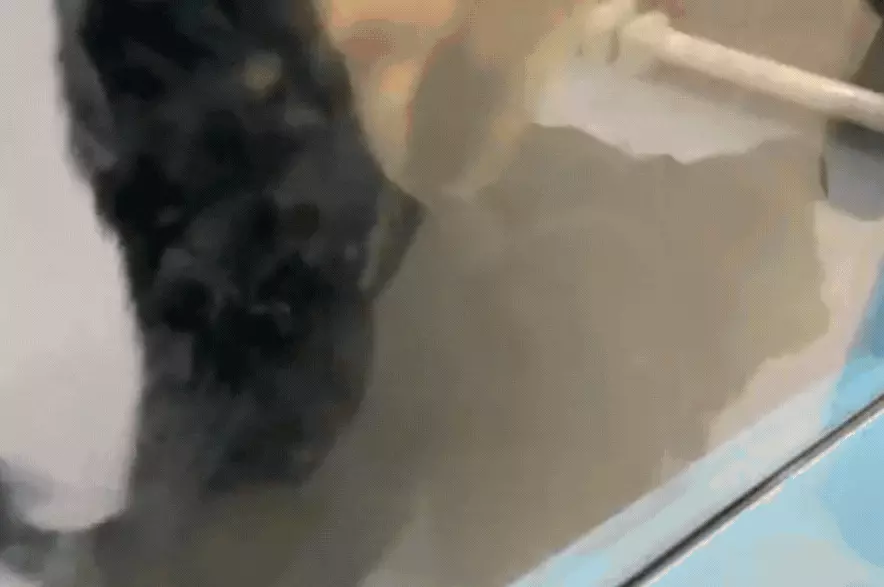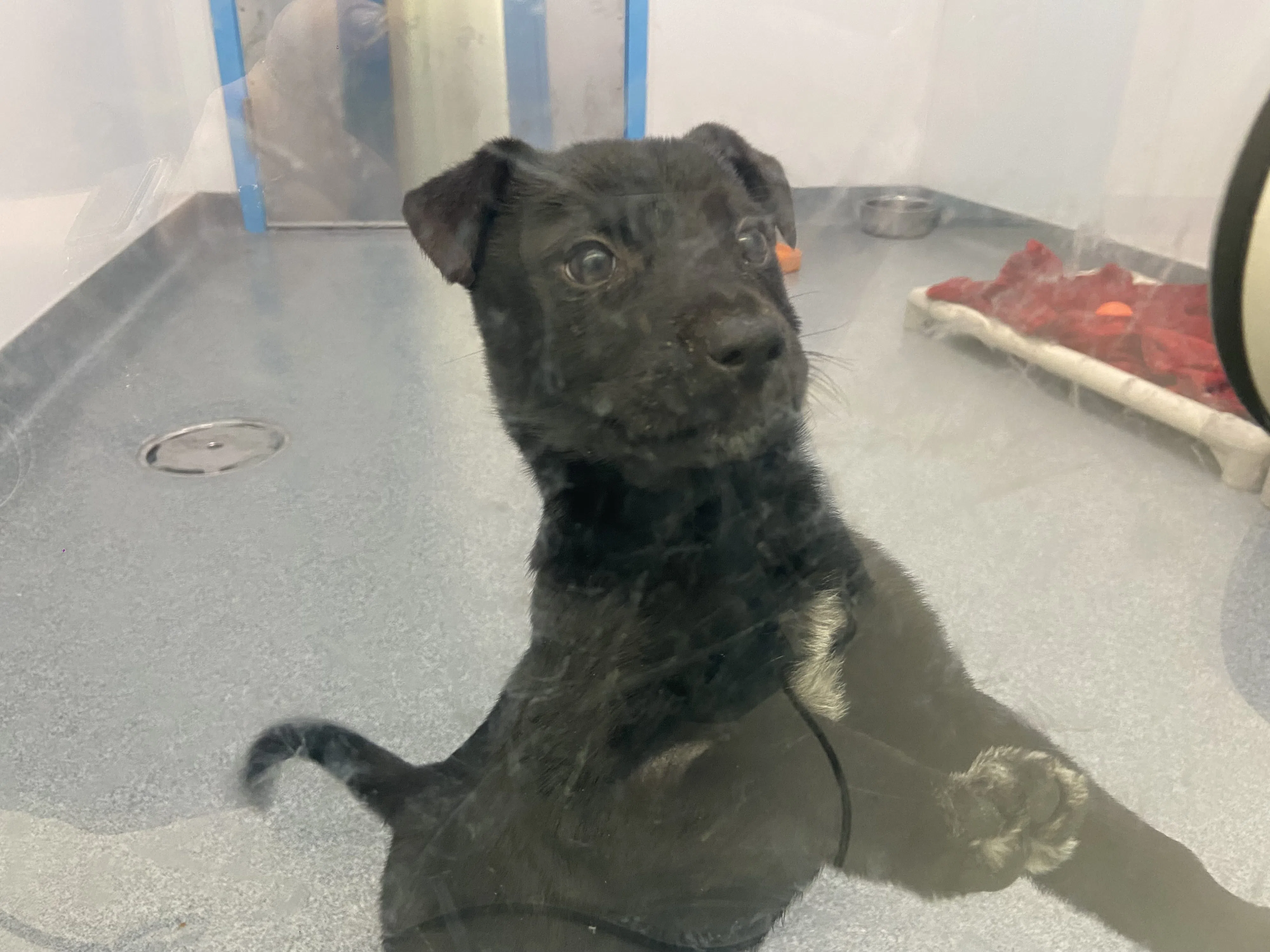The Regina Humane Society (RHS) is hoping people will open their doors to a new furry friend, more specifically, a puppy.
It is currently dealing with an influx of 43 puppies.
Kara Taphorn heard the society’s plea for help and knew she had to do something.
She adopted an eight-week old labrador retriever.
“This is California, she is a little sweetheart,” she said. “I saw her and I fell in love. (I wanted to) help a little guy that just needed a little bit of help.”
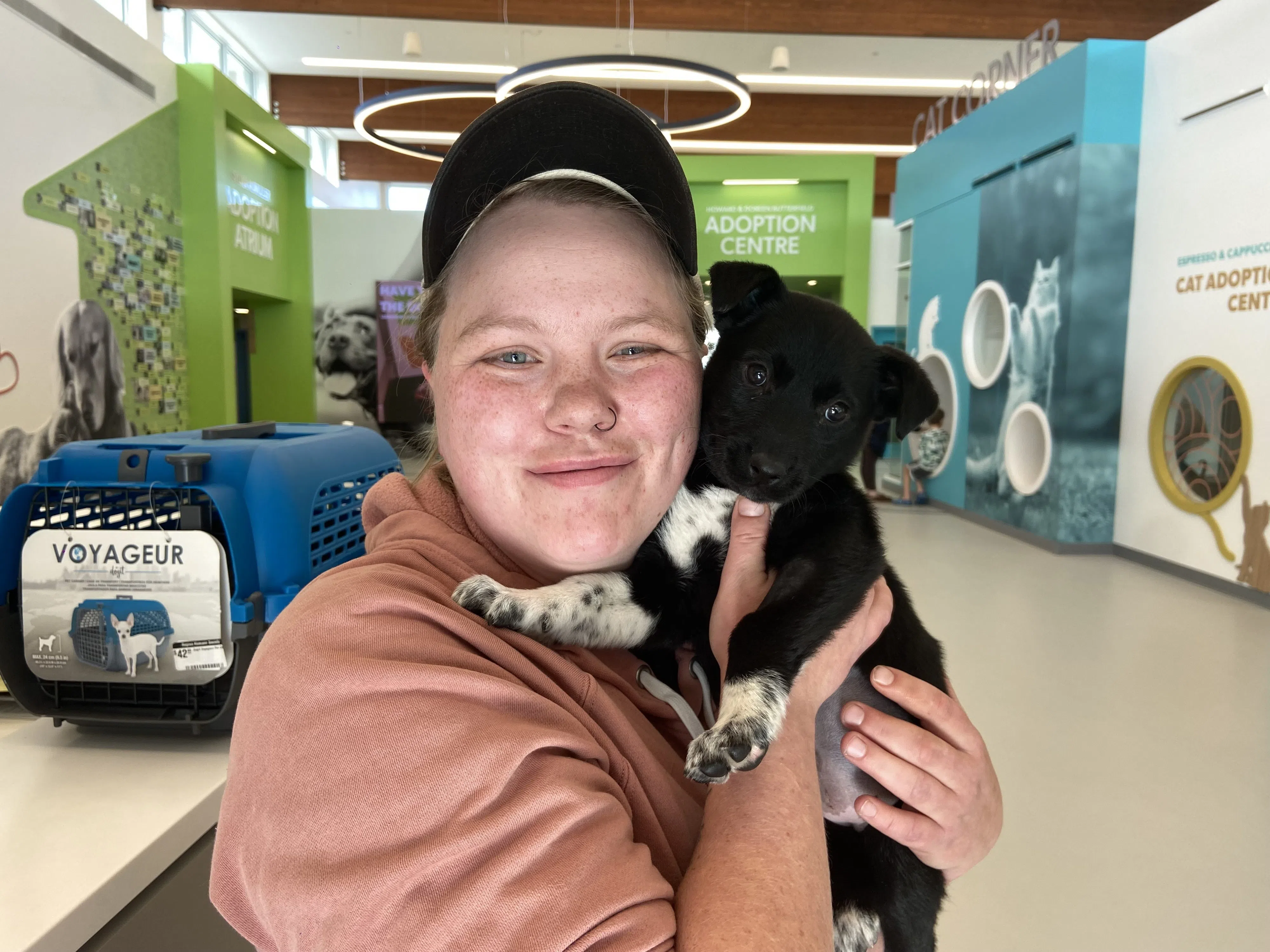
Kara Taphorn saw the RHS’ post about having too many dogs and she knew what she had to do. She’s already in love, and from all the kisses from the pup, the feeling must be mutual. (Nicole Garn/980 CJME)
Taphorn said the pup will be a perfect addition to her family. She can’t wait to surprise her kids with the new furry friend.
“She was something that I think our family needed to bring us more together,” Taphorn said. “I have two kids, and they’re just gonna absolutely spoil her. She’s gonna get so much love.”
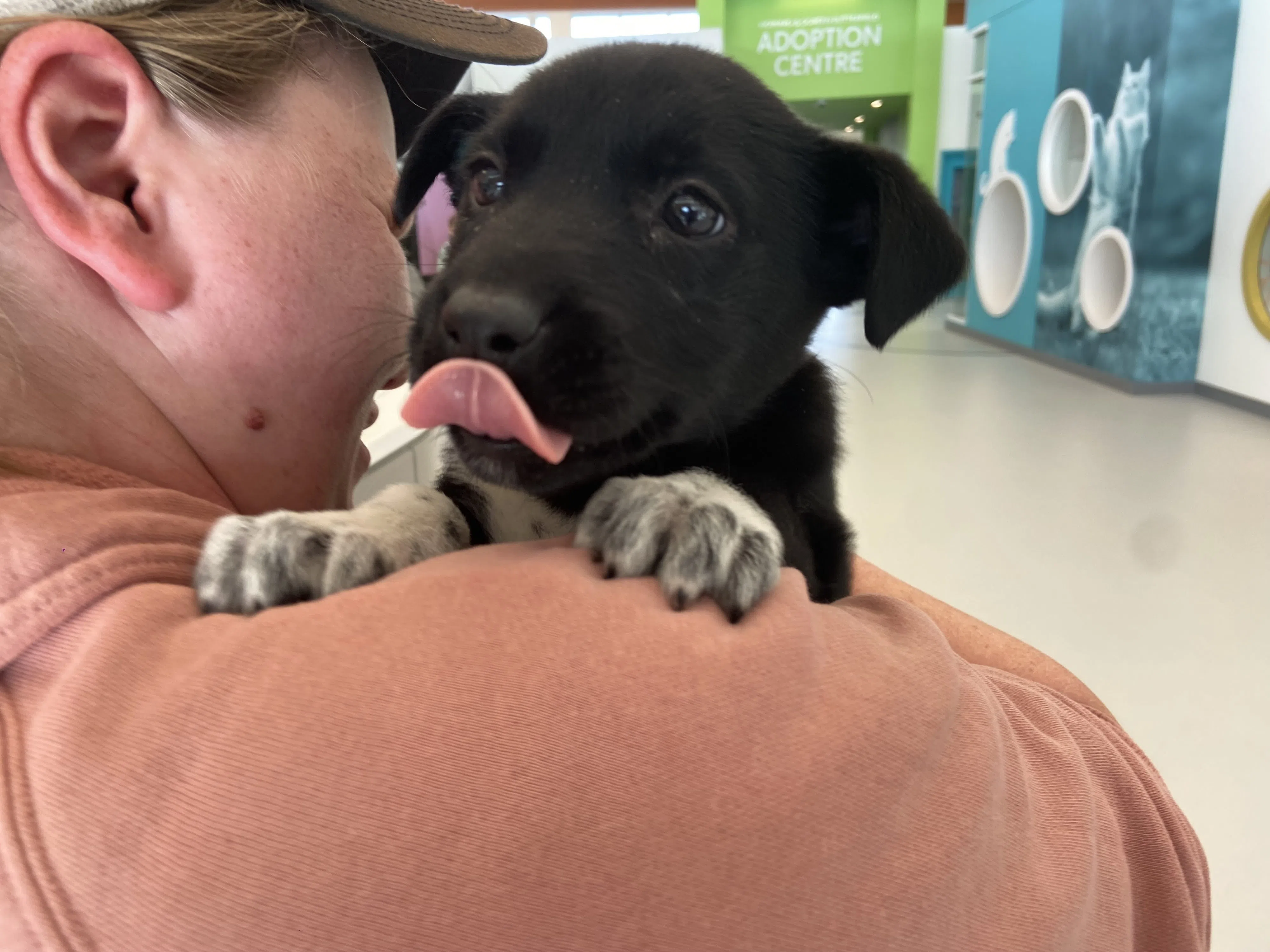
As soon as Tara Taphorn laid eyes on California the puppy, it was love at first sight. (Nicole Garn/980 CJME)
She hopes that more people will help out the RHS during this time of need.
READ MORE:
- Regina Humane Society hoping to find fur-ever homes for 43 puppies
- ‘A dream come true’ Regina Humane Society officially opens
- ‘Incredibly sad situation’: Regina Humane Society rescues dogs from poor conditions
The RHS has reduced its adoption fees to make the process more accessible. Puppies and kittens can be adopted for $75. Adult dogs and cats can be adopted for just $25.
Bill Thorn, director of marketing and public relations with RHS said this is an “incredibly unusual problem” that it’s never really had before.
“We have always seemed to have had too many cats and kittens, and lately it’s been adult dogs, but right now it’s puppies,” he said.
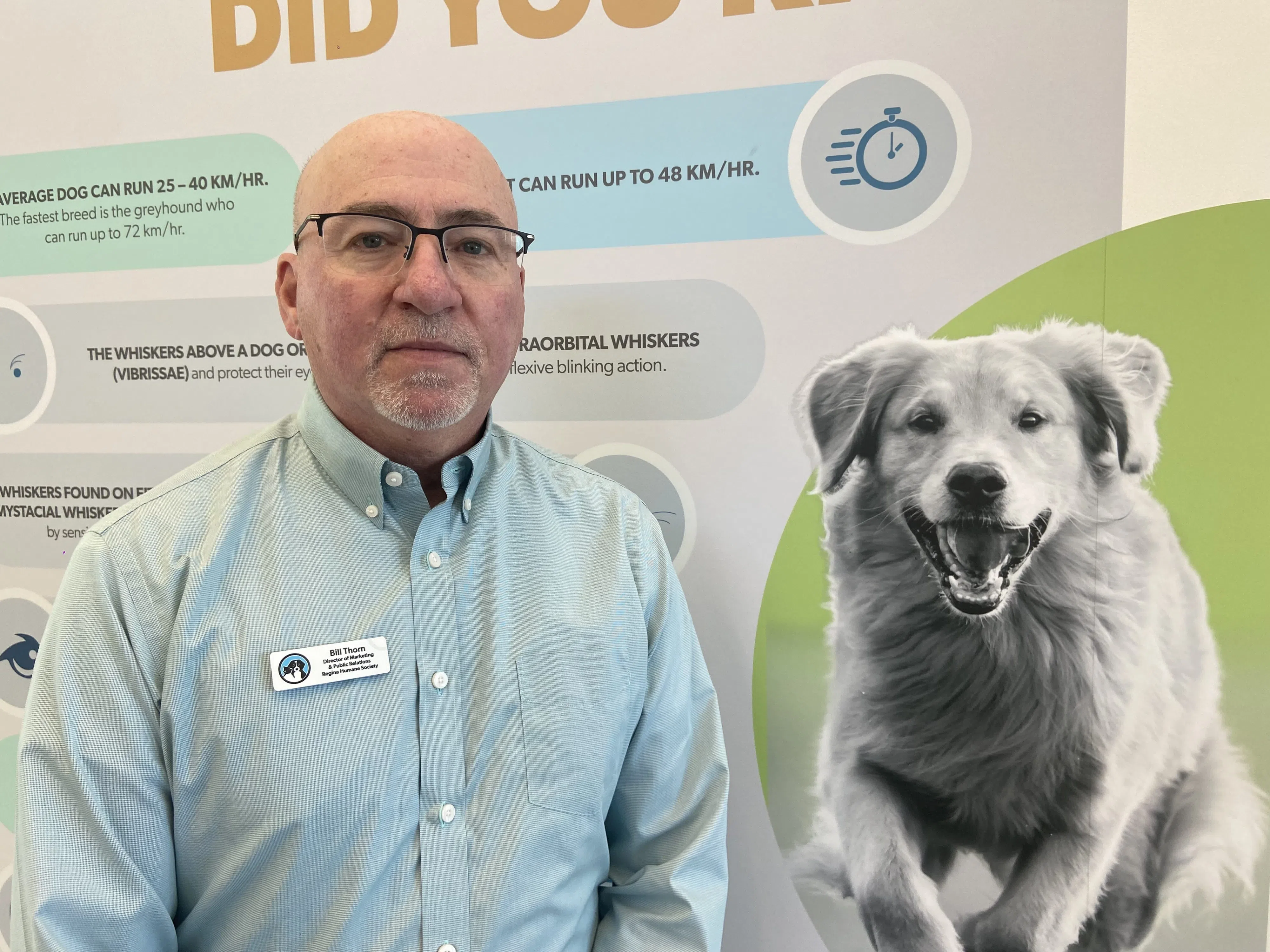
Bill Thorn with the Regina Humane Society said he hopes people will open up their homes to a puppy. (Nicole Garn/980 CJME)
The RHS can’t pinpoint a specific reason for the influx of pups, but Thorn said it could be a combination of reasons.
“We believe this is the general problem we’ve had in the past year to 18 months with canines coming … fallout from COVID still, access to vet care is a challenge right now — which includes spay, neuter surgeries, cost of living, housing — all that is contributing to the problem with dogs, and I think this is just the latest manifestation of that,” he said.
Thorn said the RHS expects to see potentially 10 more puppies into the next week but it still has to be prepared for the unpredictable animals who need care.
“There’s the ones that we don’t know about, which are the ones that are of great concern,” he said.
“We can plan if we know they’re coming, but when they show up on the door or something happens with animal protection or something like that, it can tip that scale very, very quickly.”
Although the RHS has a brand new facility, it didn’t change the capacity of animals it can care for.
“The facility is twice the size of our old building, but it holds about the same number of animals,” Thorn said.
“Modern and best practice animal sheltering is not to build a great big warehouse where you can stuff all these animals into cages and have them sitting there. That’s that’s not what we want to see. It’s more about public outreach, education, and that’s where the increased space is really focused.”
He hopes the education aspect of the RHS will prevent animals from needing the shelter in the first place, that’s his ultimate goal.
Thorn said the high number of animals is spreading resources thin, the best solution to the problem is for people to adopt.
“Half of our dogs right now are puppies I think there’s 34 in care right now, and 33 dogs,” he said. “There’s also about 150 cats and kittens in our care… if we can get those numbers down, it takes a bit of that pressure off.”
He also wants to point out that not all the animals are currently at the RHS facility, or ready to be adopted. Some animals are still too young, recovering from and illness or surgery or are in foster care.
This is why making space for the ready to adopt animals is so important.
“We’re doing our best to find the new homes, and hoping that our appeal will hit some good ears and hearts and people will come in and have a look and perhaps take one of these pets home,” he said.
Thorn thanks all the community members who have reached out and decided to adopt, he hopes to see even more.
